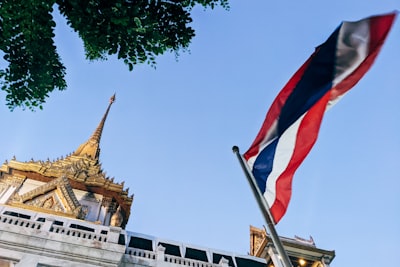As regional disputes flare, Thailand’s Prime Minister Srettha Thavisin has moved quickly to reassure allies at home and investors abroad: his coalition government remains solid, even as border tensions with Cambodia threaten to destabilize Southeast Asia’s fragile equilibrium.
Why It Matters
The Thai-Cambodian dispute, mainly over historical sites and resource rights, resurfaces at a moment when Thailand’s domestic politics have been volatile. Recent weeks saw public concerns that nationalist rhetoric or border conflict could inflame fissures between the Pheu Thai-led coalition’s urban, moderate base and more nationalist-leaning factions.
Coalition Tensions: A Balancing Act
The current government is a patchwork of rivals—pro-military conservatives, opposition defectors, and reformists. Despite repeated reassurances, observers note that a flareup with Cambodia could empower hardliners or draw opposition parties into renewed confrontation, testing Srettha’s pragmatism and his ability to maintain consensus. Successive Thai governments have been toppled by similar crises; the perception of strength is thus as important as reality.
| Pros | Cons |
|---|---|
| Stability calms markets; reassures foreign investors. | Underlying coalition tensions risk resurfacing under pressure. |
| Diplomatic engagement could strengthen Thailand's regional hand. | Nationalist backlash could derail reforms or derail unity. |
| Unified stance deters external threats. | Populist actors may exploit the crisis for personal gain. |
Border Conflict: Far More Than a Territorial Dispute
At stake are not just nationalist sentiments, but also issues of cross-border migration, drug flows, and trade—areas where both governments have much to lose from escalation. The Preah Vihear temple dispute, for example, once triggered armed clashes and mass rallies. Today, the economic stakes are higher: over 1 million Cambodians work in Thailand, and the border is a vital trade artery.
Wider Trends and Implications
This episode speaks to a broader trend—fragile coalition politics across Southeast Asia meeting resurgent border disputes and great power competition. As Cambodia strengthens ties with China and Thailand navigates between Washington and Beijing, every diplomatic flareup risks entangling the region further in global rivalries.
Noteworthy
- Recent history suggests border disputes can rapidly escalate domestically (e.g., 2011 clashes under Abhisit Vejjajiva’s government).
- Economic interdependence increases the cost of brinksmanship but not all stakeholders are swayed by economic rationale.
Bottom line: The Prime Minister’s public assurances may buy time, but they don’t eliminate deep-seated vulnerabilities. Investors and regional watchers would be wise to monitor not just diplomatic outcomes, but signals of coalition strain that could have far-reaching consequences for both Thai domestic politics and ASEAN stability.
This article was inspired by the headline: 'Thai PM assures ruling coalition is stable as dispute with Cambodia escalates'.

Comments
No comments yet. Be the first to comment!